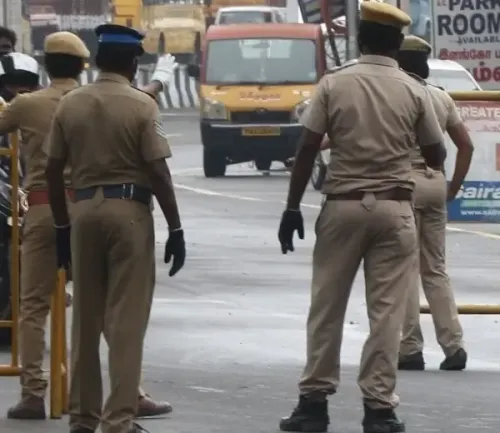Are Fake FIRs Being Filed by the BJP? Manish Sisodia's Bold Claims at ACB Office

Synopsis
Key Takeaways
- Manish Sisodia criticizes the BJP for alleged misuse of FIRs.
- Ongoing investigation into classroom construction irregularities.
- Claims of inflated contract costs raised concerns about governance.
- The AAP dismisses allegations as politically motivated.
- Political tensions between AAP and BJP escalate.
New Delhi, June 20 (NationPress) Aam Aadmi Party (AAP) leader Manish Sisodia arrived at the Anti-Corruption Branch (ACB) office on Friday for questioning and took the opportunity to launch a fierce critique against the BJP, claiming they resort to filing fake FIRs.
Sisodia's visit to the ACB office is part of an investigation into an alleged scam concerning the construction of classrooms in government schools during the previous tenure of the AAP.
Prior to entering the office, Sisodia spoke to the media, accusing the BJP of exploiting investigative agencies for political gains.
“Delhi has witnessed the establishment of excellent schools and a commitment to quality education; this is known nationwide. The BJP merely files fake FIRs and perpetuates baseless cases,” Sisodia stated.
He further commented, “It has become evident that the citizens of Delhi entrusted them with a mandate for public service, yet they lack the capability to repair roads, manage electricity, or deal with rainfall...”
Earlier this month, the ACB had summoned both Manish Sisodia and former Health Minister Satyendar Jain. Jain received his summons on June 6, while Sisodia was called to appear on June 9.
The summonses are linked to a First Information Report (FIR) filed by the ACB on April 30, which claims irregularities in the construction of 12,748 classrooms or semi-permanent structures in government schools.
The ACB alleges that the scam involved awarding contracts at inflated prices, with each classroom reportedly costing Rs 24.86 lakh, nearly five times the usual rate. Investigations suggest that contracts were awarded to 34 contractors, many of whom are connected to the AAP.
Further allegations state that the semi-permanent structures (SPS), designed for a lifespan of about 30 years, were priced comparably to more robust Reinforced Cement Concrete (RCC) buildings, which typically last around 75 years. Additionally, the ACB observed that an extra Rs 326 crore was added to the project cost without issuing new tenders.
The AAP has continually rebuffed these charges as politically driven.







